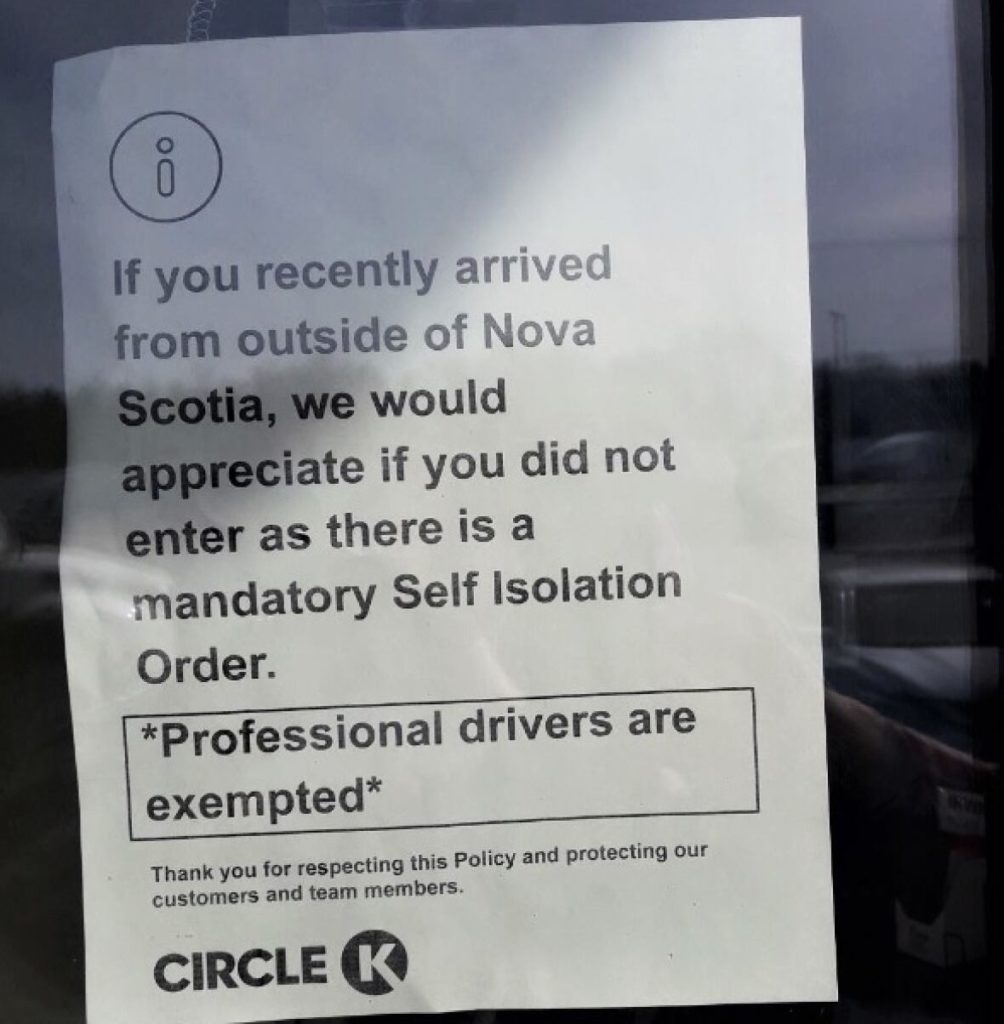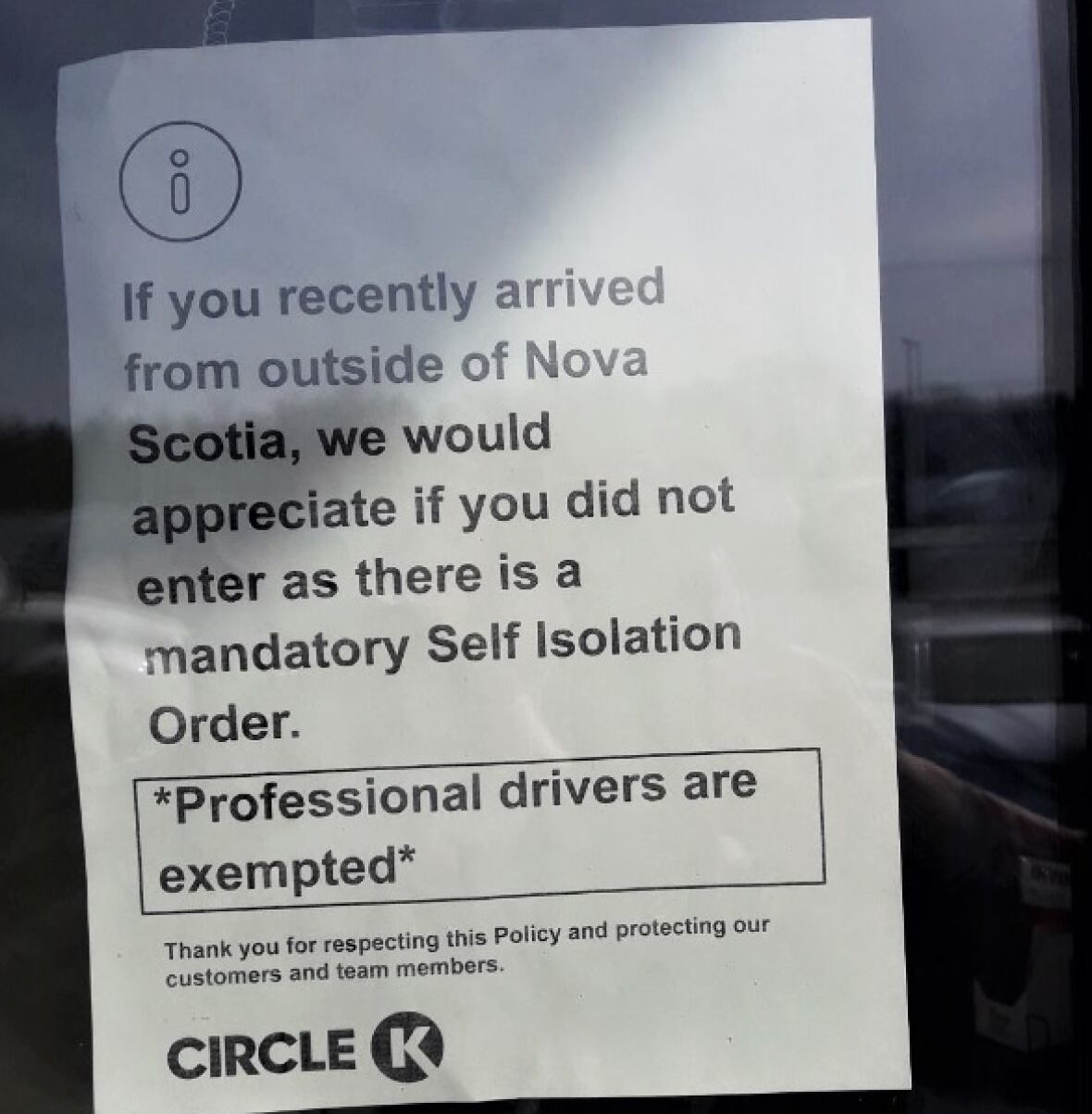‘It’s places I know looking like ghost towns’
It’s easier, if a little eerie, to get through cities, it can be more difficult to find services, and they are appreciating a few thanks along the way.
That’s the life of a truck driver travelling around North America during the COVID-19 pandemic.
When CBC Radio: Island Morning reached Alexander Lifman, who drives for Charlottetown-based Seafood Express, he was on the border of Texas and Arkansas. He’s on a planned 14-day trip that has taken him to Ontario, Wisconsin and now Texas.
“It’s been weird, because it’s places I know looking like ghost towns. Nobody’s on the streets and everything is closed,” said Lifman.
“It’s a bit strange.”

Finding services on the road can be a challenge, says Ian Dennison. (Seafood Express)
“You can fly through Montreal or Philadelphia at rush hour and there’s no traffic,” added Ian Dennison, who also drives for Seafood Express.
“It was great in terms of the drive. A little eerie. At the entrance to all the Maritime provinces only, not Quebec and Ontario, they were screening people in cars but not in trucks because we’re considered an essential service.”
Dennison was stopped at the Confederation Bridge, where he said he received good advice about self-isolating and what to do if he developed symptoms.
Social isolation
There is a lot less personal interaction on the road, both drivers said. Truck stop dining rooms are closed. Food is takeout or coming from grocery stores. Even washrooms can be harder to find.
“The part that you miss most of it is sitting in the restaurant in one of the truck stops. I usually stop in the old truck stops, not the big chains,” said Lifman.
“People speaking with drivers. This is the part now, I miss it.”

That extends to warehouses where goods are being picked up and dropped off as well. Communication is by phone instead of face-to-face. Paperwork is exchanged around a sheet of Plexiglass.
But there have also been heartwarming moments.
“I saw one thing that was really touching down in New Brunswick,” said Dennison.
“There is a really big handwritten sign as I’m rolling down the number 2 highway and it said, ‘Thank you.’ Hmm. What’s this? And then there was another sign further down the road that said ‘Truckers,’ so ‘Thank you, truckers.’ That’s really very cool.”
Lifman said he saw a thank you sign in Ontario.
When he is back from his 14-day trip, Lifman said he expects to spend 36 hours in self-isolation on the Island, and then head back out on the road again.
COVID-19: What you need to know
What are the symptoms of COVID-19?
Common symptoms include:
- Fever.
- Cough.
- Tiredness.
But more serious symptoms can develop, including difficulty breathing and pneumonia, which can lead to death.
Health Canada has built a self-assessment tool.
What should I do if I feel sick?
Isolate yourself and call 811. Do not visit an emergency room or urgent care centre to get tested. A health professional at 811 will give you advice and instructions.
How can I protect myself?
- Wash your hands frequently and thoroughly.
- Avoid touching your eyes, nose and mouth.
- Clean regularly touched surfaces regularly.
- Practise physical distancing.
More detailed information on the outbreak is available on the federal government’s website.


